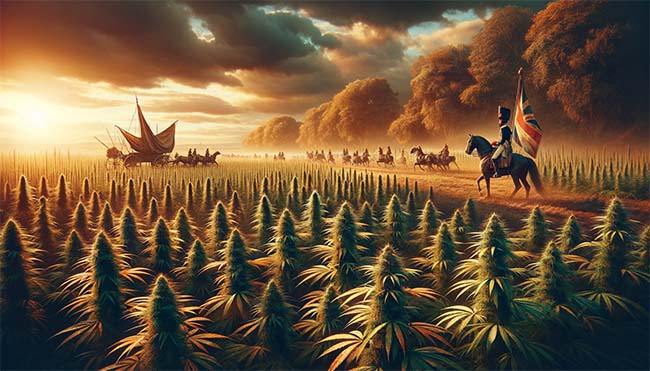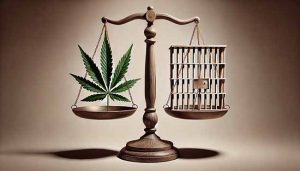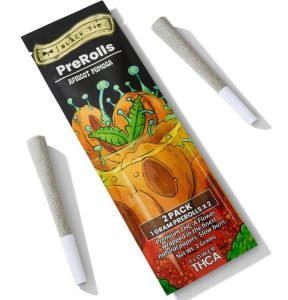Cannabis Historical Inaccuracies in Ridley Scott’s ‘Napoleon’ Film

Ridley Scott’s latest film, “Napoleon,” starring Joaquin Phoenix, is facing scrutiny for its historical inaccuracies, especially in its depiction of the French conqueror’s life. Critics and historians have particularly called out a scene where Napoleon orders his troops to fire at Egypt’s pyramids – a complete fabrication.
The film comes from Scott, the director of the famed “Gladiator,” also featuring Phoenix. It delves into Napoleon Bonaparte’s invasion of Egypt in 1798, aiming to disrupt trade between India and England and establish French dominance in the Middle East. However, the film overlooks the real challenge faced by Napoleon’s army – their entanglement with hashish, leading to an early instance of Western Europe’s cannabis prohibition.
Napoleon’s administration encouraged the French to adopt Egyptian customs. As a result, French soldiers, deprived of their native wines and liquors, became acquainted with hashish in local cafés and markets. This cultural immersion is portrayed dramatically in the film, but inaccurately so. Contrary to popular belief and the film’s suggestion, the ban on hashish was not enacted by Napoleon but by one of his generals post-campaign, intending to control Egypt and Syria rather than combating the drug’s influence.

This mandate, as Ryan Stoa notes in “A Brief Global History of the War on Cannabis,” targeted hashish use, traditionally linked to Sufi mystics and frowned upon by the Sunni elite. General Jacques-François Menou, who took charge after Napoleon, implemented the ban in 1800, partly to align with the Sunni elite, into which he had married. This law is often cited as the first modern drug prohibition.
Despite the ban, hashish use persisted in Egypt, dating back to 3000 BC. French soldiers, far from curtailing it, ended up introducing it to Western Europe. Back in Paris, the Romantic movement, known for embracing emotion over rationality, celebrated cannabis, forming the “Club des Hachichins” (Hash-Eaters’ Club).

Meanwhile, Cairo emerged as a leading hash market, rivaled only by Istanbul. Despite prohibitions and crackdowns, the industry thrived, eventually migrating to Morocco, where it remains today. The film also overlooks the critical role of hemp in the Napoleonic Wars, essential for making war materials. Napoleon’s attempts to control hemp production through the Peace Treaty of Tilsit and his subsequent invasion of Russia were pivotal strategic moves, not fully explored in the film.
Scott’s “Napoleon” thus presents a sensationalized version of history, mixing fact and fiction in a way that, while cinematic, strays from the true complexities of Napoleon’s era and his interactions with the world of cannabis.





